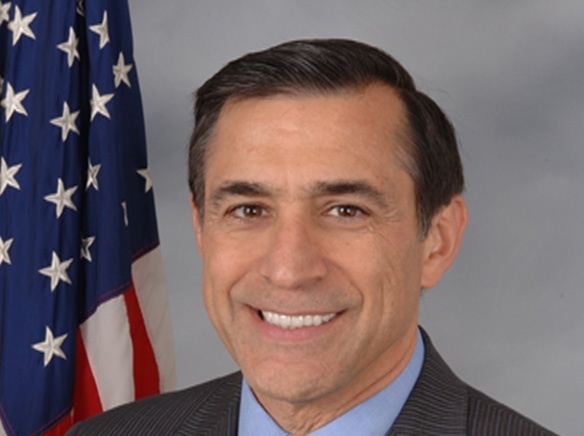San Diego County’s Local Agency Formation Commission has a policy on preserving open space and agricultural lands, and an update will be circulated for public review.
A non-voting item at the August 3 LAFCO board meeting distributed the draft update for review. LAFCO staff will also review the draft updated policy for consistency with the County of San Diego’s agriculture promotion program.
“What we’re trying to do here is to modernize the policy to reflect current conditions,” said LAFCO executive officer Keene Simonds.
LAFCO initially adopted a policy on preservation of open space and agricultural lands in November 1978 and most recently amended that policy in November 1998.
“A lot has changed in the world of LAFCO,” Simonds said.
The policy discourages proposals which would convert prime agricultural or open space lands to other uses unless that denial would not promote the planned orderly, efficient development of an area or unless the jurisdiction has identified all prime agricultural land within its sphere of influence and has adopted measures to preserve prime agricultural lands for agricultural uses. For cities the policy requires pre-zoning of territory to identify areas subject to agricultural preservation and planned development. The policy also references procedures to define agricultural and open space lands and to determine if a proposal may adversely affect such lands.
Technical revisions to include updated cross-references were approved by Mike Ott, who was then LAFCO’s executive officer, in 2001 and 2015. In March 2019 LAFCO staff brought a proposed update to the board for potential distribution to local agencies and other stakeholders for public review, but dissatisfaction with portions of the policy led to postponing any potential changes.
Six amendments were proposed by LAFCO staff in 2019: a new policy statement to coordinate with land use authorities to reduce the current average annual loss by one-half by 2040, eliminating the requirement for cities to pre-zone territory to demonstrate specific land uses (the elimination would be due to redundancy since current LAFCO law requires cities to pre-zone territory or show vested entitlements as a precondition to request boundary changes), identifying housing for all incomes as a factor to determine if a proposal which would otherwise be discouraged would promote orderly growth and therefore be appropriate, addressing inconsistencies with general plans, a new policy statement to determine when extending municipal services to agricultural lands may be appropriate, and eliminating cross-reference to LAFCO’s Procedures Guide in favor of directly adding the applicable procedures as an appendix.
LAFCO is responsible for jurisdictional boundary changes including annexations, city incorporations, consolidations, detachments, and dissolutions. Cities are responsible for land use decisions within city limits and the county is responsible for land use matters in the unincorporated communities.
The revised draft policy incorporates input from stakeholders including the San Diego County Farm Bureau and the Wildlife Habitat Conservation Coalition. LAFCO has a Cities Advisory Committee and a Special Districts Advisory Committee, and LAFCO staff also worked with those two committees. The Special Districts Advisory Committee created a subcommittee to address the proposed revisions. The subcommittee consisted of Olivenhain Municipal Water District general manager and Special Districts Advisory Committee chair Kimberly Thorner, Rainbow Municipal Water District general manager and subcommittee chair Tom Kennedy, Fallbrook Public Utility District general manager Jack Bebee, and Resource Conservation District of Greater San Diego executive director Sheryl Landrum.
“We’re supportive of the changes to the plan,” Thorner said. “We do believe that what’s before us today is fair and balanced.”
A major revision from the 2019 version distinguishes between agricultural and open space lands and their distinct societal functions relative to LAFCO’s purview. The revisions also address wildlife and local habitat planning in open space considerations and expanding the policy to distinguish differences in open space types and to prioritize the protection of natural, or unbuilt, open space lands which support wildlife. The county and the 18 incorporated cities are encouraged to engage in strategic coordination and maintain open space lands as municipal greenbelts which create community separators; in that capacity open space is recognized as a municipal service. The 2019 draft policy focused on prime agricultural land while the revised draft addresses all agriculture including unique farmland and farmland of statewide or local importance. The draft policy was also revised to distinguish between above-ground agriculture activities such as floral nurseries and in-ground activities such as row crops, which gives LAFCO additional flexibility regarding proposals involving above-ground crops.
A policy exception would be added for land which would otherwise qualify as agriculture or prime agriculture under statute (such as the potential to generate a commodity value of at least $400 an acre) if the land has not been used for agricultural purposes over the preceding 60-month period, which will help to quantify on a local basis the economic viability of agricultural uses for lands subject to LAFCO proceedings and is also intended to encourage or to avoid discouraging new agricultural ventures by eliminating the specter of future LAFCO restrictions.
“We’re not wanting to penalize new agricultural ventures,” Thorner said.
The revised draft also broadens the policy to contemplate circumstances when the extension of municipal services to agricultural lands through jurisdictional changes and/or out-of-agency contracts may be appropriate to maintain economic vitality.
“It incorporates a lot of feedback,” Simonds said.
“The changes that were made after quite a bit of discussion were very positive,” Kennedy said.
“I think this is a much smoother landing than the last one,” said Jim Desmond, who is one of two county Board of Supervisors members on the LAFCO board.














